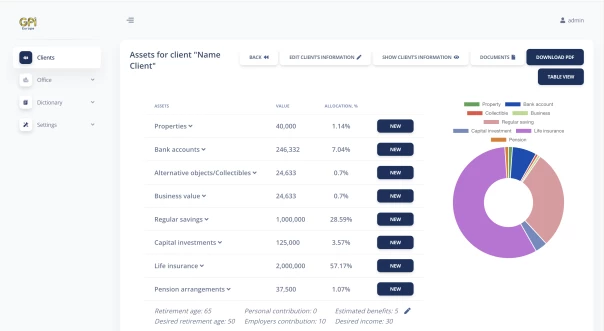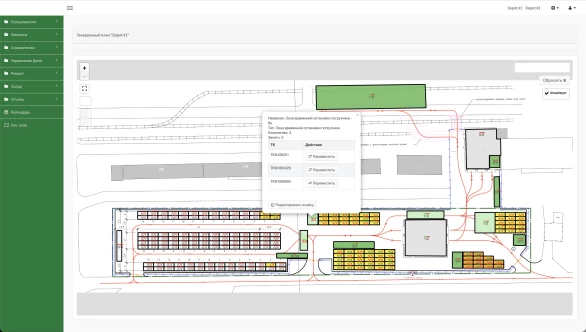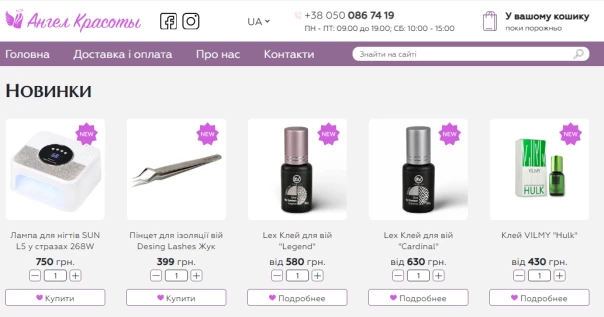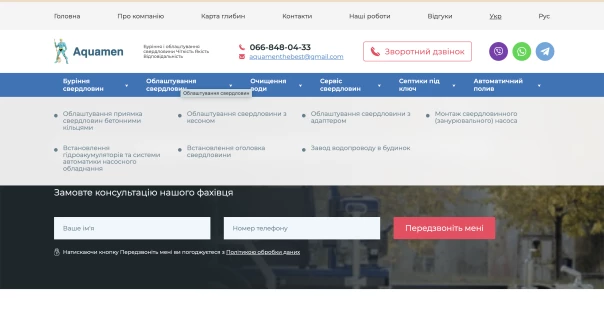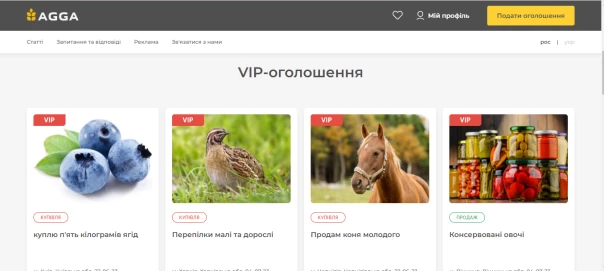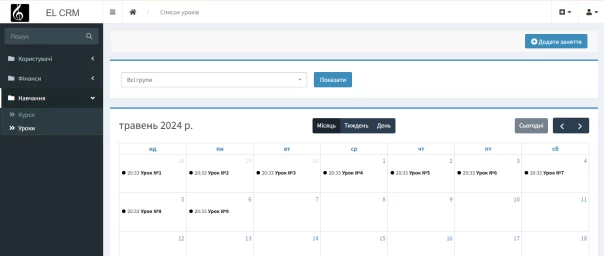SEO basics for informational websites: how to involve more traffic
Even perfectly planned website development is not a guarantee that users will rush to your platform. How many resources regularly lose their audience due to the fact that almost nothing is known about them. The problem is a large-scale one – the lack of traffic attraction and SEO does not get the website to be in the sight of users.
Why SEO is important for information websites
SEO or Search Engine Optimization – is a set of measures to improve its visibility in search engines, such as Google. It includes the use of various technical and marketing strategies. Without content optimization, a resource simply will not be seen by the target audience, being in the last positions of search results.
Obviously, SEO is critical for any platform – a business card website, online store, blog and of course an information resource. Here are a number of reasons why optimization is important.
Involving organic traffic
SEO allows to optimize a website so that it appears in the top results of search engines (Google, Bing, etc.) for relevant user queries. Why it is the top positions of the search results – everything is simple. Users overwhelmingly pay attention to the first pages of search results. The closer to the top the target resource is, the more likely it is that people will visit it. Top positions provide an increase in traffic without the use of paid advertising.
Visibility and brand awareness improvement
Information websites that regularly appear on the first page of search engines become more recognizable to users. This is important for the growth of brand authority and influences the formation of a loyal audience. Users are more likely to trust resources that rank high in search results.
Compliance with the rules of search engines
SEO includes a number of technical aspects:
- page loading speed;
- optimization of content for mobile devices;
- URL structure;
- proper use of meta tags, etc.
Search engines give preference to websites that meet these requirements. The results is the better rankings and top positions.
Meeting users’ the needs
SEO for information websites is also aimed at improving the user experience. This includes the creation of high-quality content, easy navigation, loading speed and compliance with gadgets.
The reason why such resources are more attractive to users is in psychology. When a reader sees useful and properly organized information, he/she trusts the website. The time spent on the page increases, which is recorded by search engines. Accordingly, such a resource increases its rate in the rankings.
Rivalry
SEO is an extremely powerful tool in chase of user loyalty. An information website that effectively applies optimization strategies can outperform similar resources. For the owner, this means that the website has the opportunity to occupy a more profitable niche in the content market.
Content analysis and its improvement
One of the main aspects of SEO for information websites is constant monitoring of results, analysis of user behavior and improvement of content based on this data. Information websites adapt more quickly to changes in the needs and interests of the audience, which allows them to remain relevant.
Increasing the resource profitability
More traffic means more monetization. This is an extremely important point for information websites that depend on profitability. Competent content optimization increases traffic and increases profitability as a result.
Keyword research
The process of the keyword research – is the first stage of SEO. It helps to determine which phrases are most often searched for by users within a specific topic. Accordingly, the content can be focused on these words, which will automatically improve the visibility of the website in search engines.
Keyword research for SEO begins with defining the topic and target audience. Thus, keyword research tools are used:
- Google Keyword Planner;
- Ahrefs;
- SEMrush.
After collecting the thematic core, the most promising key phrases are analyzed. There is a rule here – to choose those words that are in demand but not too competitive.
It is also important to take into account semantic variations and long-tail keywords. They are more specific than general expressions. Such constructions have a lower volume of search queries, but also less competition, which makes it possible to attract target users.
A simple example: instead of the general phrase “shoes”, a long-tail word can be “red women’s high-heeled shoes”. Such constructions help to hit the needs of users more accurately, which means they provide a higher conversion rate. Thus, based on the analysis of keywords for SEO, a content strategy for an information website is formed.
Optimization of meta tags and titles
This is the second stage of general SEO for information websites, which helps to improve their visibility in search engines and attract users. Meta tags should include:
- Meta Description: a short description of the page that appears in search results under the title and increases CTR;
- Robots: is a signal for search engines to index the page or not;
- Meta Keywords.
The last point is practically not taken into account nowadays by such a system as Google when ranking a website. However, Meta Keywords can be important on other machines and SEO specialists should keep them in mind.
The main page titles (H1) should be clear and contain the main keywords. They structure the content, make it understandable for users and search engines.
It is important that meta tags and headings are relevant to the page content and meet the needs of the target audience. Overloading them with keywords is undesirable – search engines do not perceive such resources as organic ones.
Technical SEO for information websites
Technical SEO for information websites focuses on resource optimization in order to improve the user experience. This is especially important for information platforms as they often have a large amount of content and need to organize data efficiently.
The main points of technical SEO are:
- optimization of page loading;
- mobile adaptation;
- concise URL structure;
- customization of Sitemap and Robots.txt files;
- reducing the number of 404 errors;
- correct organization of redirects.
For increasing traffic micro-markup of the resource is important. Its presence “explains” to the search engine what type of content it is dealing with on this website.
Increasing page loading speed
How quickly a website loads pages directly affects the user experience. Why loading speed is critical for proper SEO:
- ranking positions: Google uses loading speed as one of the factors in determining the position in the search results – “fast” websites automatically go to the top;
- speed is especially important for mobile devices – Google separately evaluates this parameter with the Mobile First Indexing algorithm;
- more prompt resources are popular among users;
- lowering the load on the network by reducing the time it takes to execute requests.
- No one wants to wait for a website to finally appear on the screen. Such resources are unpopular with both users and search engines.
- There are several ways to optimize website responsiveness:
- working with visual content: for example, compressing images with minimal loss of quality;
- caching;
- minimization of HTML, CSS, JavaScript structures;
- using a CDN (content delivery network).
A good solution to improve the website speed is to choose a powerful hosting service.
Link building and its role in SEO
Link building is the process of getting backlinks to a website from other network resources. Backlinks are an important criterion for ranking in search engines in particular in Google.
What does link building in SEO provide for information websites:
- improving the visibility of the website for the audience;
- gradual traffic increase;
- backlinks from authoritative resources help to increase the trustfulness of the target website.
Link building – is good, but the process itself should focus on organic, relevant links. The thing is that an excessive number of backlinks can easily provoke restrictions from the search engine. Remember: a poor link building strategy – is worse than its absence.

